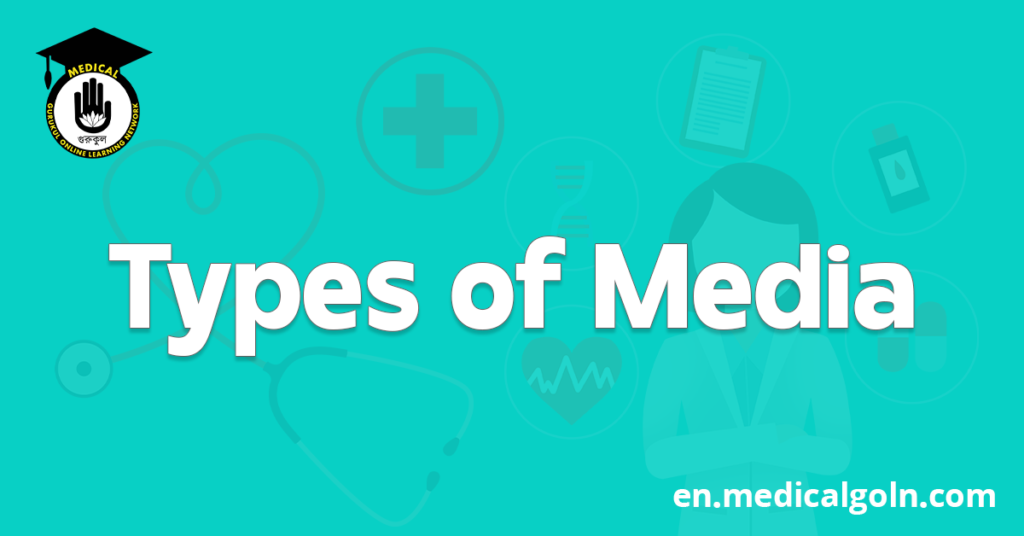Today is our topic of discussion Types of Media
Types of Media
Definition:
These are the tools used to store and deliver information or data.
Types of media:
According to technology:
1. Printed – Journal, magazine etc.
2. Electronic: E-mail, fax etc.
3. New age: Video conferencing, telemedicine etc.
According to origin:
1. Traditional – Art, town-criers, folk plays etc.
2. Modern-Mic, microphone etc.
According to coverage:
1. Mass media – The media which are used to cover huge population, such as, newspapers, magazines, booklets, leaflets, television, radio etc. It has the advantage of reaching a relatively larger population in a shorter time than is possible with other means.
2. In-house media
According to materials used:
1. Audio: tape-recorder or player, microphone, mic, radio etc.
2. Audiovisual: television, video tape recorder or player etc.
Visual –
a. Projected: some visual aids require projection light and a screen or a clear wall on which projection can be focused, such as slides, overhead projector etc.
b. Non-projected: chalk-board, flipcharts, poster, flash card etc.
[Q. Media of health education and media of communication?
Ans. See just above]
Description of methods of communication:
Speech –
A speech is an oral presentation of a subject by a qualified individual. In a speech forum, immediately following the speech, there is active audience participation in free and open discussion.
Panel discussion or forum –
A group of four or eight persons who has special knowledge on a particular topic, sit at a table hold an orderly and logical conversation with the audience on the assigned topic.
Symposium –
It is a conference in which two or five persons deliver speeches on different aspects of a problem under the direction of a chairperson.
Colloquium –
It is an informal method of discussion in which a particular topic is discussed, with guest speakers or experts and the experts provide accurate information.
Group discussion –
A group of persons (6 to 20) meet together with a trained leader to discuss and deliberate cooperatively on a topic of mutual interest. It helps to understand common problems and encourages and develops self-confidence.
Seminar –
A group of persons gather together for the purpose of studying a subject under the leadership of an expert. It enables presentation of new information and permits free discussion.
Workshop –
A group of persons (12 or more) with common interest or problems – professional or vocational meet together for an extended period of time to improve their individual proficiency, ability or understanding.
Convention –
It is an assembly of representatives or delegates from local units of a parent organization, having a common interest. This enables a member organization to participate in policy making and planning, etc. of parent organization.
Committee –
A small group of individuals appointed or elected to perform a task that cannot be done by a large group.
Conference –
It is a good mechanism by which two or more persons of varying views and expertise meet and discusses problems of mutual consideration with a view to find a reasonable solution.
See also :

